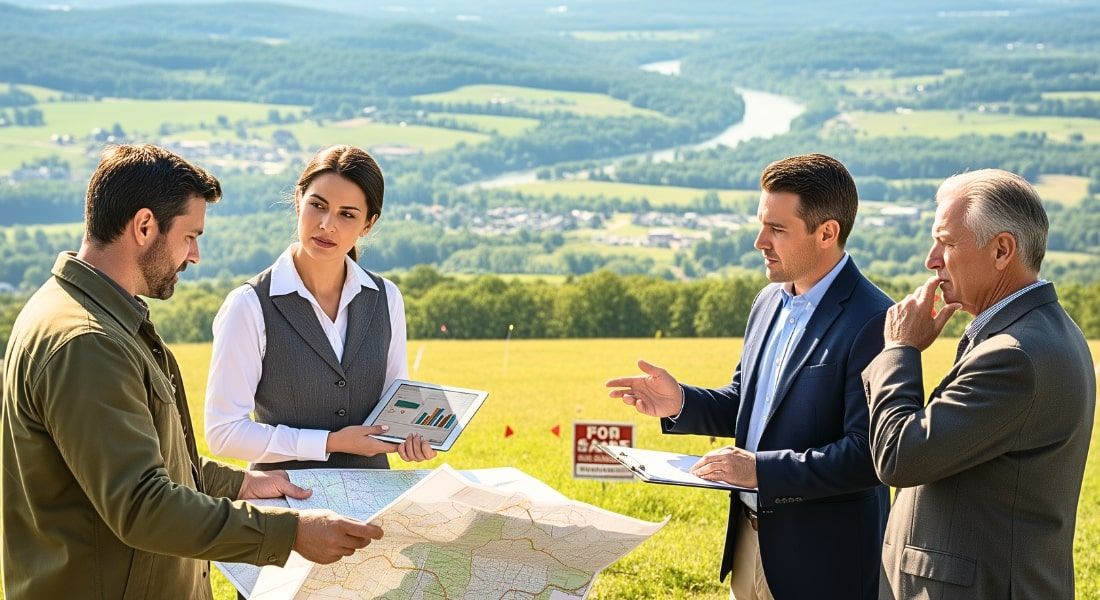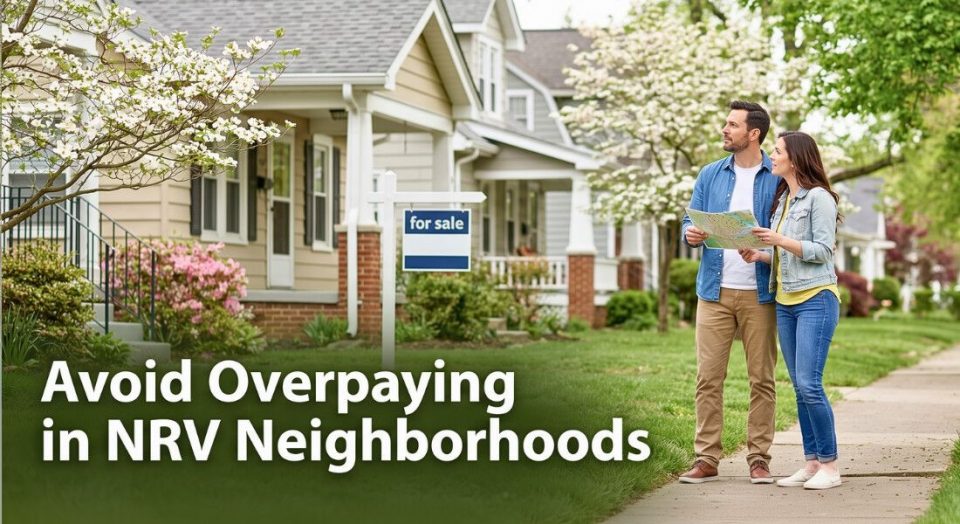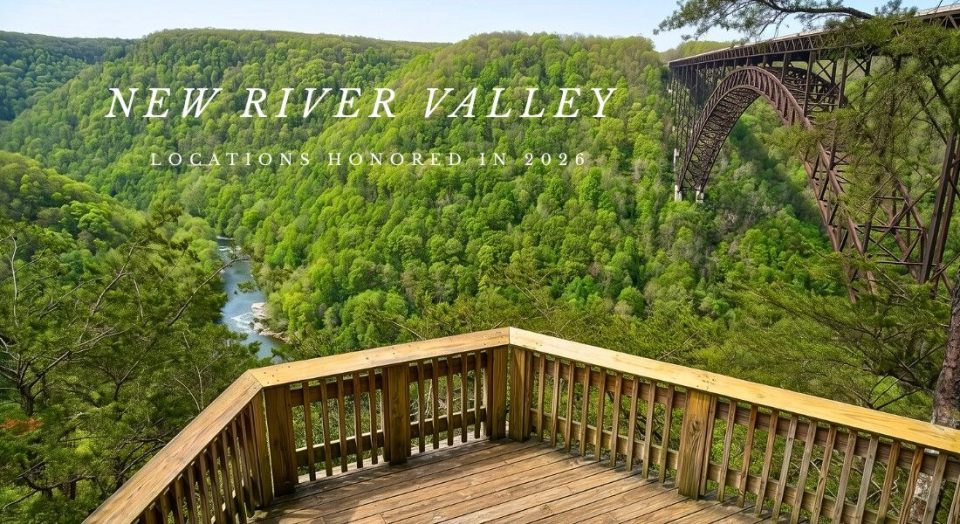Top New River Valley Towns for Land Investment in Virginia

Land investment in Virginia is on the rise, especially in the New River Valley (NRV). Its balance of affordability and growth is drawing in buyers. The challenge is knowing which towns truly offer the best long-term value. Not all areas have the same drivers, and the right choice can make a major difference.
This post breaks down the best NRV towns for land investment. You’ll see where growth is happening and how land and real estate prices are trending. You’ll also know the unique potential of every town.
New River Valley Real Estate Market Watch
As of August 2025, the average home sales price in Giles County was about $237,500. This figure is roughly 16.1% higher than the previous year. However, NRV real estate trends are always changing. Contact The Louise Baker Team for help buying and selling homes in Virginia’s New River Valley.
Best NRV Towns for Land Investment in Virginia
Here are six NRV towns that stand out for land investment. Each has its own strengths, depending on what you’re looking for.
1. Blacksburg
When people think about the NRV, Blacksburg usually comes to mind first, and for good reason. Home to Virginia Tech, the town is abuzz with activity from students, faculty, and researchers. This steady stream of people drives both housing and commercial demand.
Land close to campus or along major roads costs more, but it also tends to appreciate more reliably. Some zoning allows for mixed use of land, which can be a huge plus and opens doors for creative investors. So, if you want a market with dependable growth, Blacksburg is tough to beat.
2. Christiansburg
Think of Christiansburg as a more affordable version of Blacksburg. Although only minutes away, land here comes with a smaller price tag. That’s why it’s attractive to buyers who want to live near the action without paying campus-town premiums.
Commercial growth in the area is also strong. Retail centers, restaurants, and highway access continue to draw people in. Christiansburg is a solid choice for land that can support new housing or small commercial projects.
3. Radford
With Radford University anchoring its economy, Radford is known for having a steady housing demand among students and staff. This constant housing need helps land values hold up year after year.
Compared to Montgomery County, parcels around Radford are often more affordable. Investors here often focus on single-family homes, duplexes, or smaller multifamily projects. Radford strikes a balance between lower entry costs and steady rental or resale potential.
4. Floyd
Floyd doesn’t offer the usual university-town model in NRV. The area is more about lifestyle, acreage, and natural beauty than student demand. The county, which is popular for its creative community and tourism appeal, attracts individuals seeking farms, retreats, and recreational land.
Lots here are usually larger, making them more flexible for agricultural or recreational projects. Supply is limited, though, which makes for a steady appreciation over time.
5. Pearisburg and Giles County
Pearisburg, the seat of Giles County, offers excellent value. Median home prices continue to climb year-over-year, which indicates that more buyers are paying attention to this area.
Outdoor amenities like the New River and Appalachian Trail add extra appeal for second-home or recreational land buyers. Land near main roads or town centers tends to hold value better. Meanwhile, more rural options are more affordable but may need infrastructure upgrades. All in all, Giles County often makes a smart starting point for entry-level land investors.
6. Pulaski
Pulaski strikes the perfect balance between affordability and access. Land here costs less than in Montgomery County, yet it still benefits from solid transportation routes and regional commerce.
Investors use Pulaski land for residential builds, agricultural projects, or simple long-term holds. If you’re looking for a market with multiple possibilities and a lower entry price, Pulaski is a practical option.
How To Choose the Right Town for Land Investment
Price is important. However, these other factors often matter just as much when selecting land in NRV.
- Access to roads, utilities, and broadband. Land with good access to roads, water, sewer, or high-speed internet usually holds up better in value. Broadband, in particular, has become essential as more people are doing remote work.
- Zoning and subdivision rules. Each town has its own set of rules that shape what you can and can’t do. What you can’t do legally will matter. Zoning may restrict lot size, building types, or land use. So always check local rules before you commit.
- Growth projections. Always keep an eye on upcoming infrastructure projects, such as highway improvements, school expansions, or new shopping centers. Undeveloped land near any future development often gains value faster.
- Natural features. Land with river frontage, mountain views, or easy access to recreation often attracts more buyers. On the flip side, parcels on challenging topography, such as steep slopes or flood zones, may be harder to develop and incur extra costs.
- Resale potential. Always think ahead and ask yourself: who might want this land in five or ten years? Remember that university towns and job-growth areas tend to have more consistent buyer demand than rural spots with fewer economic drivers.
Keep these points in mind. These factors will help ensure your purchase supports both your budget today and your investment goals tomorrow.
Common Questions Land Buyers Ask in the NRV
How long should I hold NRV land before selling?
Most investors plan for a 5 to 10-year window. This time frame gives appreciation and neighborhood growth time to accrue.
What zoning issues should I watch for?
Rules vary by town. Always check with local planning or zoning offices to understand permitted uses (residential, agriculture, commercial), minimum lot sizes, road frontage, and whether utilities are available before making an offer.
Does utility access really matter that much?
Absolutely. Land with existing access to water, sewer, electricity, and broadband almost always sells faster. It’s also easier and less pricier to develop.
What are the ongoing costs of owning land?
Expect property taxes, maintenance, possible clearing, managing erosion, and potential costs for upgrading roads or bringing in utilities.
Can I finance raw land in the NRV?
Yes. Land loans are available. However, terms are often stricter than traditional home mortgages. They tend to have higher interest rates, larger down payments, and sometimes, shorter loan durations.
Partner With NRV Homes
If you’re serious about making a land investment in Virginia, especially in the New River Valley, you’re in the right place. NRV offers a range of opportunities, with each town having its own strengths. Blacksburg has university-driven growth, while Floyd or Giles County has a more rustic appeal and flexible land.
The Louise Baker Team knows the ins and outs of every corner of the NRV. We can help you compare parcels, understand zoning, assess infrastructure, and align any deal with your financial goals.
Ready to dive into a land investment in Virginia? Contact NRV Homes today to explore land investment opportunities across the valley.



